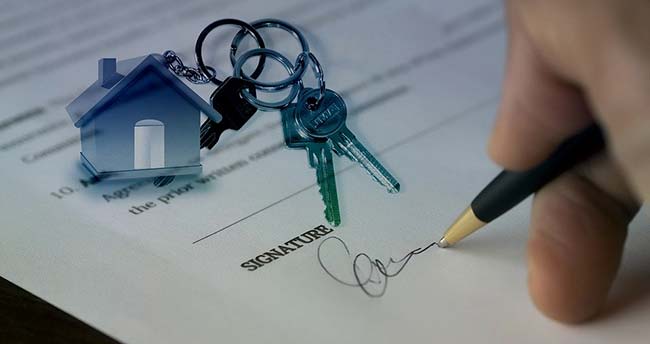Home equity loan is one of the most common modes of debt consolidation.
As a secondary loan, this is basically founded on the fact that you already have an existing and outstanding credit on hand.
The loanable amount is based on the difference between the homeowner’s equity and the home’s market value.
It allows you to borrow funds using your home’s value as collateral security.
You may either take your cash proceeds in a (a) lump-sum payment which allows you take out a large, one-time cash out and is usually done if you have immediate expenses, or (b) line of credit, where you can withdraw as much as you need whenever you want up to the credit limit.
If the loan is not paid off, the home could be sold to satisfy the debt.
Article Chapters
The Home-Equity Loans Basics
Borrowing against home equity can be a convenient way to access cash but it also carries risks.
If you are considering taking this type of loan, here are the basics you must know:
- Your application will have a higher chances of getting approved if you have a high credit score which typically ranges from 620 to 700 and a good debt-to-equity ratio, maximum loan-to-value ratio of 20% (which should mean that your debt-to-equity ratio should be at 80% and below) since you are to leverage on the equity you possess.
- You will have to document your ability to pay. Financial positions may be required from the consolidator from where your debt-to-equity ratio will be computed. Secureemployment and a solid income record, even if you have changed jobs occasionally, can also be advantageous when applying for a home-equity loan. You should have maintained a 43% debt-to-income ratio throughout your employment career.
- Interest costs on home-equity loan are deductible for taxation purposes, only if the loan proceeds are utilized for home-related expenses such as renovations. Also, the deductibility of your cost will be based on whether you choose itemized deductions and not the Optional Standard Deduction (40% of your Gross Receipts as an individual) as your deductible expenses.
- It is important to shop around. Inquire quotations from potential creditors such as online banks and credit unions, but more especially from your current lender, to take and consider the best negotiable terms you can have.
- Default payments may result to foreclosure; you may lose your home. You must ensure on-time payments of both principal and interest to ensure you won’t lose property ownership.

How to Get A Home-Equity Loan
First step is to assess the need to apply for additional loan – your capability to pay the current loan and the pros and cons of paying it off through your current available cash versus securing a new loan to settle it; the likelihood probability of missed or default payments which may cost you your home; and the assurance that you will be able to settle the new loan when due should be considered and evaluated.
If you have decided to proceed from your first step, inquire from your current lender, credit unions and banks of the possible deals they may offer for your new application.
Get different loan estimates from several sources including a local loan originator, an online bank or from a national broker.
Compare and contrast your options and choose the best deal you can get.
Prepare your documents and your home; your potential lenders may require home appraisals.
Benefits of Home-Equity Loans for Consumers
Home-equity loans provide an easy source of cash.
Obtaining this form of debt is quite simpler compared to other types of credit since it is a secured debt.
Borrowers can qualify for larger loans when they have sufficient equity.
Lenders can offer funds for anything you may desire and would not necessarily have to be used for home-related expenses.
Loan proceeds may be used for educational purposes, business start-up, or even for settling currently outstanding debts.
The interest rate on this loan is relatively higher than the first loan but is comparatively lower than credit card debts and other consumer debts.

Benefits of Home-Equity Loans for Lenders
For home-equity loan as secondary mortgage to a borrower’s initial mortgage, lenders leverage is highly maximised that after earning interest and fees from the first debt, earn more interest and fees in the succeeding home-equity loans.
In case the borrower defaults, the lender gets to keep the money earned from interest costs imposed from the initial mortgage and from the home-equity loan, plus he gets to repossess the property collateral.
Home-Equity Loan as Debt Consolidation Alternative
A home-equity loan is one of the cheaper debt relief options because it’s a low-interest loan.
Many individuals who were having a hard time paying off credit card debts opt to use this consolidation alternative.
The questions now which will linger is how effective will this consolidation be and will a debt consolidation ruin my credit?
Debt Consolidation: Pros and Cons
Home-equity loans have lower interest rates than other debt consolidation loans plus these interest costs are deductible for taxation purposes and usually have longer payment terms which usually ranges from five (5) to seven (7) years.
Like any other consolidation techniques, home-equity loans have both positive and negative effects on your credit score.
Your settlement for your first debt will create a positive effect on your score.
This will reduce your utilisation rate and you will mark in your credit history as a good payer of due debts.
On the other hand, application for a second loan will increase your utilisation ratio and will adversely affect your credit.
Not to mention, in case of default payments, you do not have the option of raising bankruptcy as defence unlike in credit card debts, you are of a risk of losing your home due to foreclosure if you fall behind on payments.
A home-equity loan is a secured loan; by securing this type of loan, you have authorised your creditor to foreclose the home in case you default.
Takeaway
If you qualify and decide to take out a new loan through a home-equity loan, be sure you have understood how it works and that you have taken the best deal for your new credit.
Traditionally, home-equity loans have repayment terms just like any other conventional debts.
You might want to run the numbers to ensure that you have reduced your costs before signing.
Debt is very inevitable.
It can either be beneficial and disadvantageous depending on the way it is utilised.
Regardless of the way it was used or the purpose it may have served for, what is owed should be paid.
Creditors have provided options and chances to pay and settle, debtors will only have to maximize those options.

